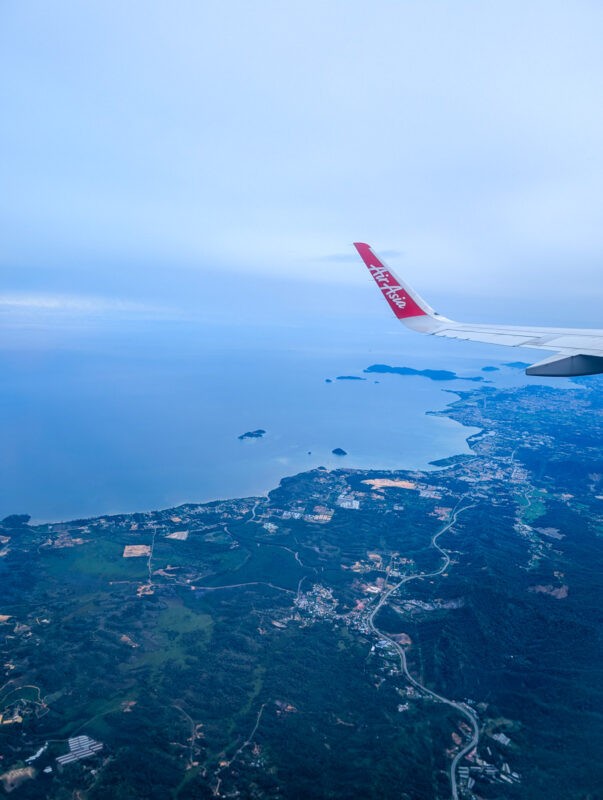I’ve recently returned from a trip to Borneo, and one question that many people asked me before I was planning a trip there was is Borneo safe?
Borneo safety wasn’t something I considered hugely before my trip, but there are a few things to be mindful of, especially if you’re visiting the east coast or eastern islands.
Here’s everything you need to know, based on my experience from my trip!
Is Borneo safe?
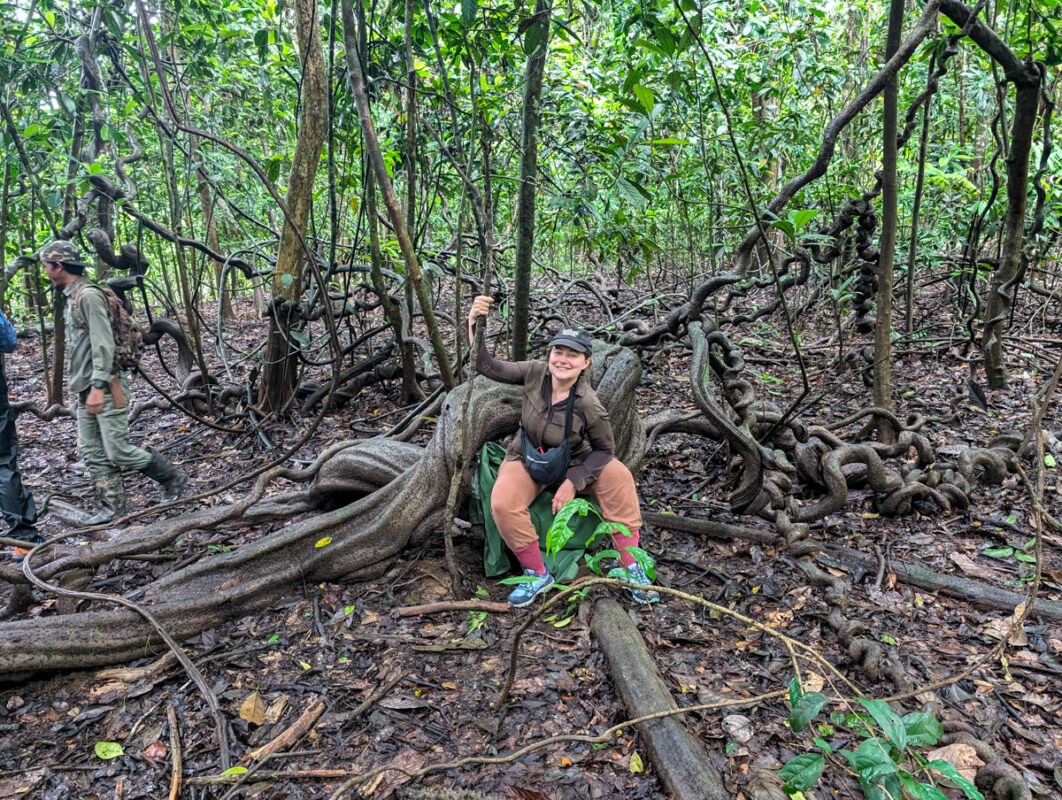
Yes, I found Borneo to be generally safe for travellers.
During my time there, I never felt unsafe or uncomfortable, whether I was exploring the cities, trekking through the rainforest or relaxing on the beaches.
Borneo, like many Southeast Asian destinations, has a reputation for being friendly and welcoming to tourists. This is one of the reasons why Borneo is well worth visiting!
There are plenty of tourists who visit Borneo every year, and the locals are incredibly hospitable and eager to help.
You’ll often find people going out of their way to ensure you have a good experience – whether that’s giving directions or sharing a bit of local knowledge.
But Borneo is a vast island, divided between Malaysia, Indonesia, and Brunei, each with its own unique characteristics.
Most travellers stick to the Malaysian states of Sabah and Sarawak, which are known for their natural beauty and well-established tourist infrastructure.
These areas are generally safe – in most areas, the main concerns are the usual travel advisories about taking care of your belongings and being cautious in unfamiliar areas.
But one area that’s worth mentioning is Eastern Sabah, near the Sulu Sea.
This region has had some security issues in the past, particularly with kidnappings by militants crossing over from the nearby southern Philippines.
However, security has been significantly increased in recent years, and incidents have become much rarer.
The overwhelming majority of visitors to Borneo don’t encounter any issues.
Are kidnappings in Borneo a concern?
While Borneo is generally safe, there’s a specific area on the eastern coast of Sabah that has had some issues with kidnappings in the past.
This region which is close to the Sulu Sea and the southern Philippines, has been a hotspot for militant activity, and there were several high-profile kidnappings in the early 2000s.
These incidents led to many governments issuing travel warnings for this part of Borneo.
But these incidents are now very rare.
The last significant kidnapping involving tourists happened in 2016, and since then, the Malaysian government has bolstered security in the region.
There’s a stronger military presence, regular patrols in the waters and improved border controls.
Some reports even suggest that the increased security makes it nearly impossible for these militants or pirates to cross over into Borneo now.
Despite the improved safety measures, the area remains under cautious advice from some governments, including the UK and Australia, which recommend avoiding all but essential travel to the eastern coast of Sabah.
If you do plan to visit this part of Borneo, check your government’s current travel advisories and ensure that your travel insurance covers you for this region.
Not all insurers will cover areas under such advisories, so it’s worth double-checking before you go.
If you’re looking for insurance for your Borneo trip, check out SafetyWing. They offer insurance for Borneo and include sports cover – scuba diving and other activities! Take a look at them here.
Is Borneo safe for diving?
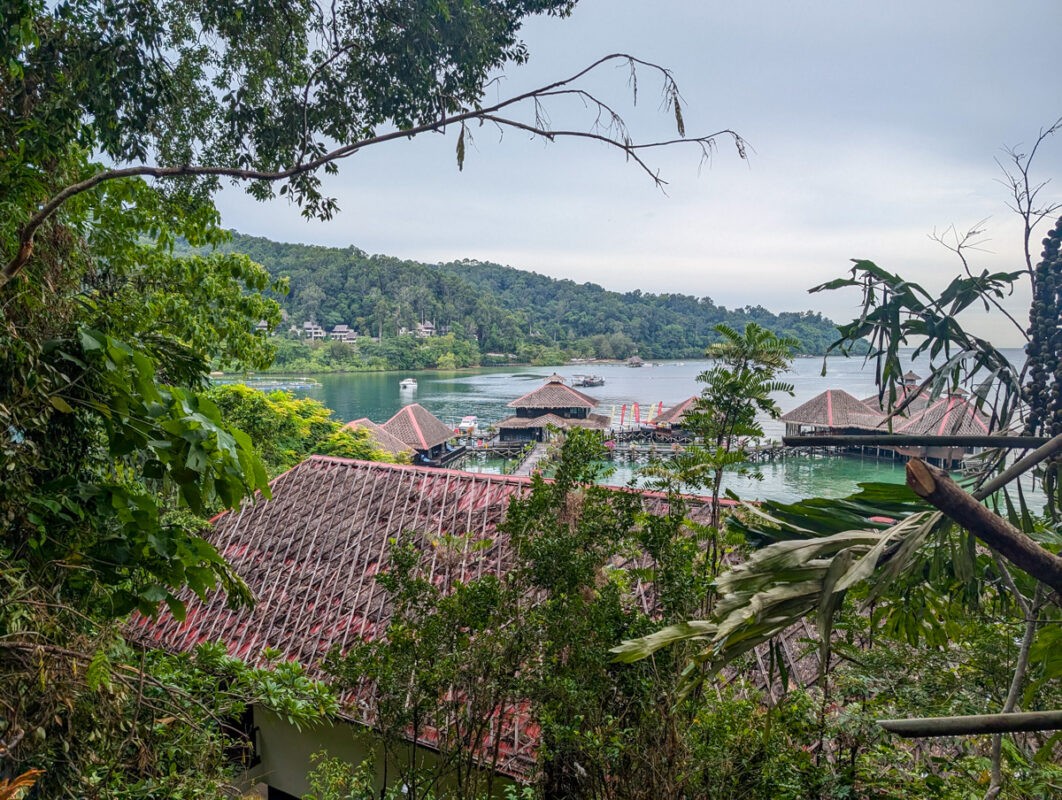
Yes, diving in Borneo is very safe, provided you go with a reputable dive operator.
Borneo is home to some of the world’s most famous dive sites, including Sipadan, which is often ranked among the top diving destinations globally.
However, because of its popularity, choose a well-regarded dive school that prioritises safety.
One of the reasons that we didn’t end up diving in Sipidan was that we were going to book a package tour, and the dive school that they worked with (Uncle Chang’s) had awful reviews!
Female travel in Borneo
Borneo is generally a safe destination for female travellers, including those travelling solo. I travelled with a group of female friends, and we felt comfortable all the time – we didn’t experience any catcalling or unwanted male attention.
For solo female travellers, the usual safety advice applies: avoid walking alone at night in unfamiliar areas, be cautious with your belongings and trust your instincts if a situation doesn’t feel right.
Public transport and taxis are generally safe, but it’s always a good idea to arrange transport through your accommodation or a reputable service (I exclusively used Grab in Borneo).
What to wear in Borneo
Borneo is a predominantly Muslim so dressing conservatively is generally recommended, especially when you’re not on the beach or at a resort.
For women, this means opting for long, loose-fitting trousers or skirts and tops that cover your shoulders.
This both shows respect for the local culture and also helps you stay cool and protected from the intense tropical sun.
Men can typically wear shorts and T-shirts in most areas, but again, long trousers are a good idea if you’re visiting local villages or mosques.
In more casual settings like the beach or diving boats, swimwear and lighter clothing are completely acceptable. Just remember to cover up when you leave those areas!
If you’re planning to hike or explore the rainforest, lightweight, moisture-wicking clothing is best, along with a good pair of walking shoes.
The jungle can be humid and muddy (and there are leeches in the water!) so long sleeves and trousers are also useful to protect against insect bites and scratches.
Dangerous animals in Borneo
Borneo is renowned for its incredible biodiversity – it’s part of the reason why it’s so popular with nature lovers!
But with this rich wildlife comes the presence of some potentially dangerous animals!
While the chances of encountering a dangerous animal are relatively low, it’s important to be aware of what’s out there and how to stay safe.
Saltwater Crocodiles
One of the most well-known dangerous animals in Borneo is the saltwater crocodile, which can be found in rivers, mangroves and coastal areas.
These crocodiles are large and powerful predators, and while attacks on humans are rare, they do occur.
I would recommend avoiding swimming in any open water unless you know it to be safe.
Venomous snakes
There are lots of venomous snakes in Borneo, but it’s unlikely you’ll come across one.
Pit vipers are amongst the most common venomous snakes in Borneo, but they are usually shy and will avoid human contact. Generally, you’ll only find them deep in the jungle, so just keep a watch out for them if you’re trekking!
Spiders and insects
We were told that “there are no venomous spiders in Borneo” while at Uncle Tan’s rainforest camp.
But the giant centipede has a venomous bite that can cause severe pain and swelling. While not life-threatening, encounters with these creatures can be unpleasant!
Other land animals
Other animals like orangutans and sun bears aren’t typically dangerous to humans but can be unpredictable if they feel threatened or cornered. However, it’s unlikely that you’ll see thee in close proximity.
Rabies is another concern in Borneo, particularly in rural areas where there are stray dogs and other animals like monkeys.
While encounters with rabid animals are rare, the disease is present and can be deadly if not treated promptly.
If you’re bitten or scratched by a dog, monkey or any other mammal, seek medical attention immediately.
I also recommend the rabies vaccination before travelling to areas where medical facilities may be limited.
Marine animals
In the waters surrounding Borneo, there are jellyfish and some species of fish that can pose a threat. Box jellyfish, though rare, have been spotted in the region, and their stings can be fatal.
March to June is typically the season when they’re found in Bornean waters.
Sharks aren’t typically a problem in Borneo – you might see one while diving, but they’re usually small and harmless.
Health and safety in Borneo
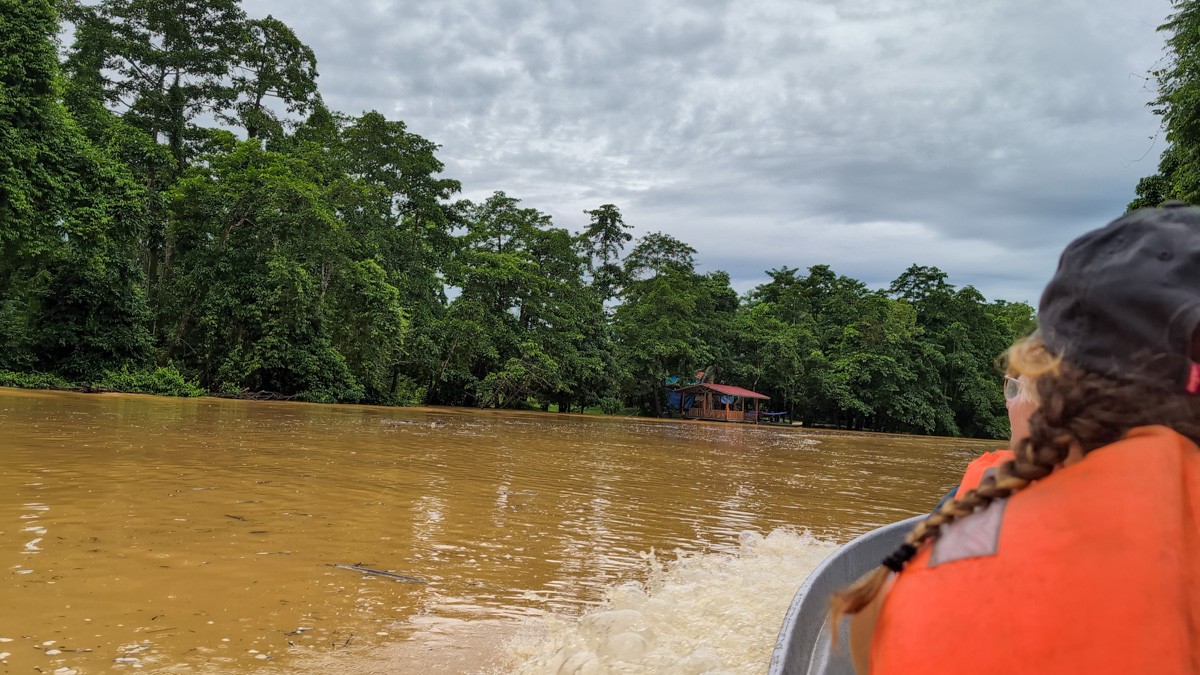
Health and safety are important considerations when travelling in Borneo, but with a few precautions, you can stay healthy and enjoy your trip without any major issues!
Mosquitoes are a big consideration – especially in the rainforest or rural areas.
Malaria is not widespread in the Malaysian parts of Borneo, but it does exist. Dengue fever is also present in the cities.
Make sure to use insect repellent, wear long sleeves and trousers in the evening and sleep under a mosquito net if you’re staying in the jungle.
Medical facilities in larger cities like Kota Kinabalu and Kuching are generally good, but in more remote areas, access to healthcare can be limited.
So, do bring a basic first aid kit and any prescription medications you might need.
Travel insurance that covers medical evacuation is also recommended, particularly if you’ll be engaging in activities like diving or trekking.
SafetyWing now has a sports package that includes sports add-ons. Take a look at them here.
Can I drink tap water in Borneo?
No, it’s not safe to drink tap water in Borneo.
To avoid getting sick, stick to bottled or filtered water, which is readily available in most places.
If you’re in a more remote area, it might be wise to bring a portable water purifier or water purification tablets.
Also, be cautious with ice and any beverages made with tap water.
Can I eat street food in Borneo?
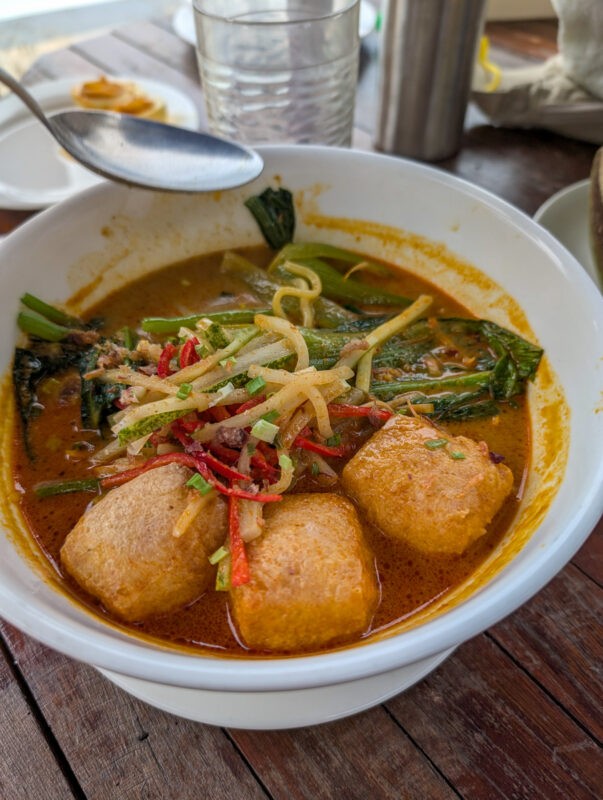
Yes, you can eat street food in Borneo, and it’s often a highlight of the trip!
The street food is generally safe and offers a fantastic way to experience local flavours.
To minimize the risk of any stomach issues, choose stalls that are busy with locals, as this is usually a good sign of fresh and well-prepared food.
Avoid anything that looks like it’s been sitting out for too long, and stick to freshly cooked items.
So, is Borneo safe?
Largely, yes, Borneo is safe! Take common precautions, and you’ll have a hassle-free trip to this beautiful island.
Take a look at my is Borneo worth visiting post to learn more about the island!

